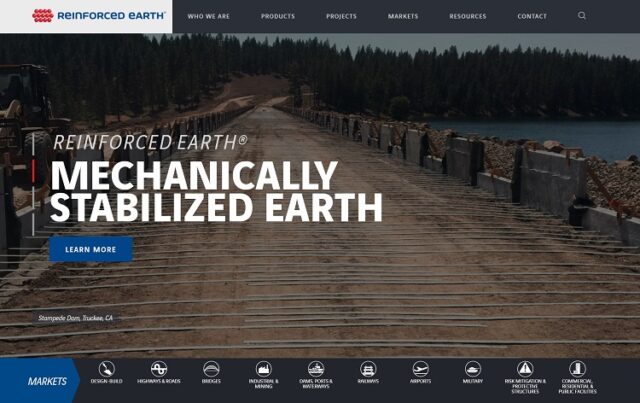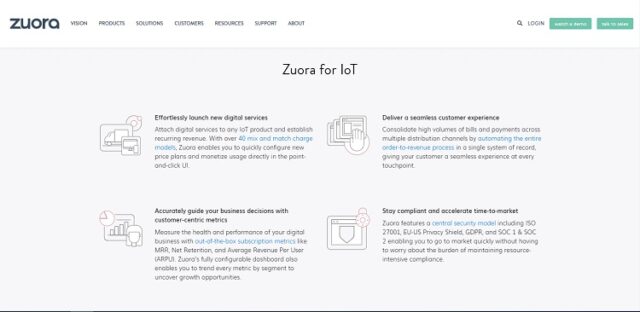When a potential client comes looking for a business to work with, they may be searching for more than the right product or service.
A client who runs an online store and needs a new site, for example, may want a web designer with experience working with e-commerce businesses. A different customer who works in manufacturing may want a vendor with industry experience — one that can recommend materials or fabrication techniques.
These are a few of the reasons why it’s important to market both what you do and who you work with:
Contents
1Customers Want Your Expertise
If you run a B2B business, your customers may be interested in more than just the products or services you offer. Many buyers are also interested in cultivating long-term business relationships — often, so they can benefit from the knowledge and experience your staff offers.
Business expertise is often just as valuable a selling point as the products or services you provide. If you have strong experience with an industry, customers who need knowledge from that sector may be more excited to work with you.
2Customers Want to Know If Your Products Are Right for Their Industry
Some clients, when looking for a business to work with, want to be sure the products they find will be right for their particular industry or a certain upcoming job.
Reinforced Earth, a Virginia-based civil engineering design company and materials supplier, offers an example of this on its homepage.
Mechanically stabilized earth (MSE) is a wall encased in a facing and made from soil constructed with artificial supports. It’s more stable than soil alone and is useful in a wide range of construction projects. However, there’s a surprising amount of variety with different MSE products. There are temporary walls, permanent walls, walls with traffic barriers and walls fit for installation on natural slopes and stone faces.
While some types of MSEs may be right for a project, they may not be the perfect fit for others.
Reinforced Earth uses their homepage to show off the different industries they serve. This can give customers from those niches confidence that the company may have a product that’s right for their specific needs.
If a potential client is looking at many different options, they’ll likely go with the business that highlights products for their specific industry. When you offer industry-specific goods or various services, a quick nod to the different sectors you serve can provide this reassurance.
3Customers Want to Know You Speak Their Language
Different markets often have their own vocabularies — code words, phrases and shorthand terms that make communicating tough concepts much simpler.
While it may not be a major issue if a specific vendor doesn’t speak this language, problems can emerge in a long-term business relationship. Communication breakdown may be more likely if you and your clients don’t use specific terms in the same way.
If you’ve worked for clients in a particular niche or market, proving you know that industry’s language by using your site can help you secure future customers.
Zuora, a developer of software-as-a-service subscription platforms, offers an example.
The Internet of Things (IoT) is a technical industry where success depends on deep knowledge of complex software and hardware — as well as an evolving legal landscape.
With a handful of keywords with specific industry meanings — like compliance, service and seamless — Zuora demonstrates they know the sector and have some experience navigating issues like data privacy laws and IoT monetization.
A potential client seeing a page like this may be much more confident moving forward with collaboration. They’ll know they probably won’t have to explain basic industry concepts or switch up how they communicate.
4Customers Want to Know If They Can Trust Your Brand
Demonstrated industry experience is often a good way to tell if a particular company can actually deliver the services they offer.
If you can describe the industries and niches you’ve worked for — or detail how they may benefit from your service — your advertising and marketing appeals may seem a lot more convincing.
Even if you don’t have direct experience with a customer’s particular sector, they may feel more at ease if you can show you’ve worked with professionals in a wide range of industries.
5Customers Want to Take Advantage of the Latest Industry Developments
If you’re an industry outsider, you may not be the first to know if there’s a breakthrough in a certain sector — like the adoption of new techniques, technologies or standards.
As a result, the tech, products or services you offer may not be useful in current contexts. They may not even be compatible with some of the latest industry technology.
An industry-specific B2B or B2C vendor will likely stay on top of industry developments and tweak their offerings due to changing sector conditions. Their services will probably be compatible with new protocols, industry standards or devices before competitors who primarily work with clients outside that industry.
Customers who want to use new and cutting-edge industry tech may only want to work with businesses that have this kind of niche awareness and knowledge.
How Industry Experience Can Make Your Business More Compelling
The industries your business serves can have a big impact on how customers perceive you — and how excited they will be about working with your company.
Experience with industries relevant to a client is often a good sign you’ll have the expertise and products they need. A wide range of experience, in general, can also signal that your business can work outside of its niche and still find success.
Highlighting your industry experience on your website, social media or marketing materials is often an excellent way to secure additional sales and assure potential clients of your company’s abilities.














